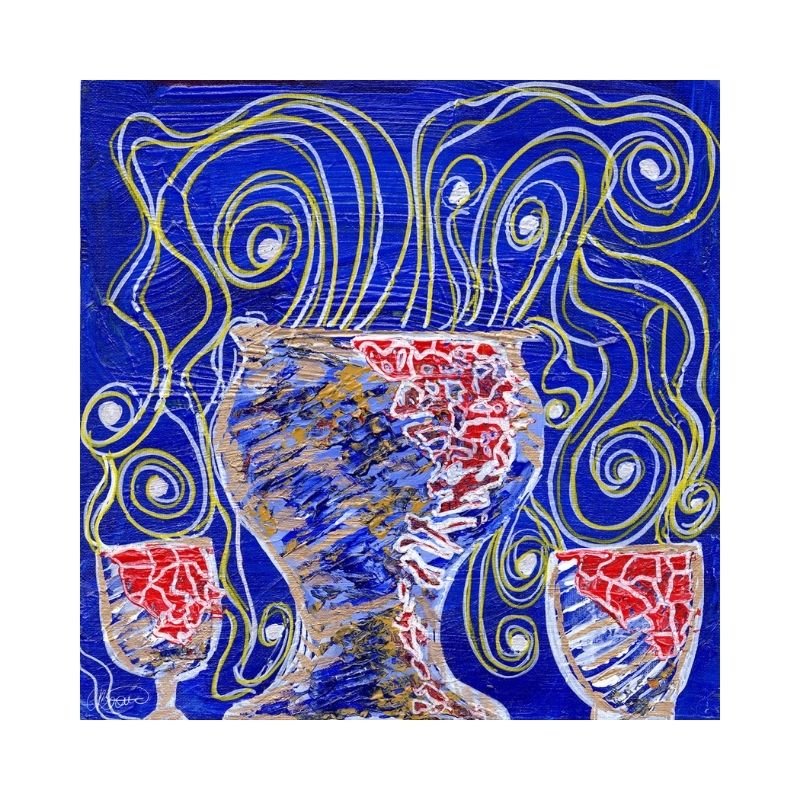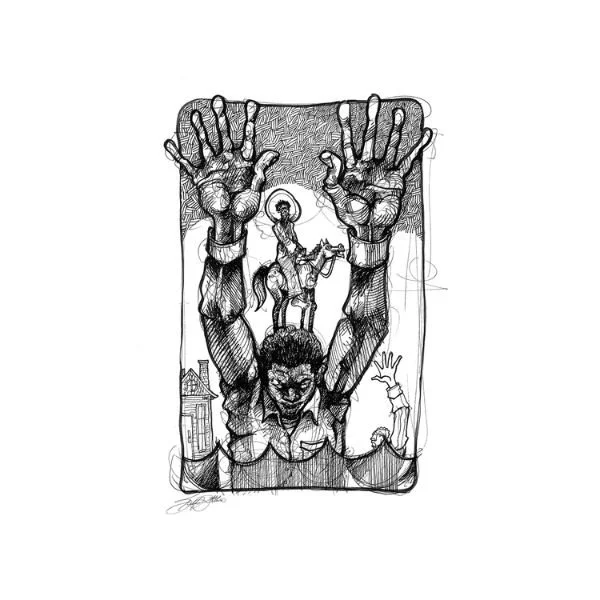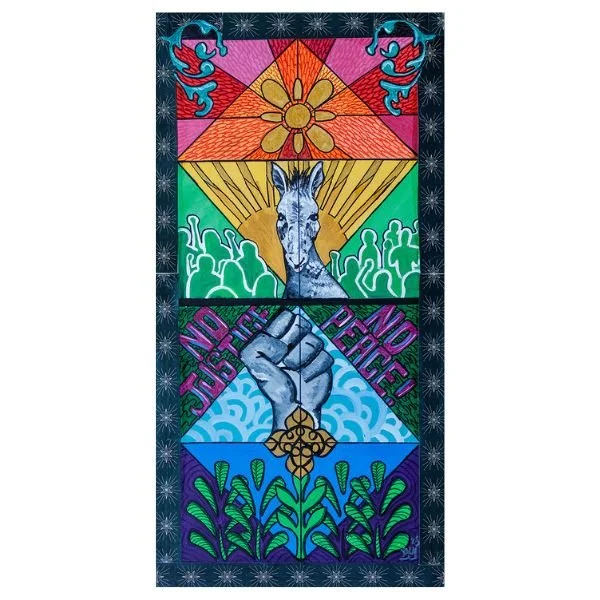Posca Image License (John 19:1-30)
Posca Image License (John 19:1-30)
DIGITAL DOWNLOAD FOR ONE-TIME LICENSE
Interested in licensing a single image for worship or ministry use? This one-time license grants you permission to use this image for ministry purposes. Print the image as bulletin cover art or project the art and engage with it during worship, Sunday School, or Youth Group. We hope you might use our images as tools for spiritual formation.
If you are interested in an art print of this piece, please visit our print shop.
Posca
Acrylic on canvas
By Carmelle Beaugelin
Inspired by John 19:1-30
From our “Full to the Brim” Lent & Easter 2022 collection.
Order includes:
high-res image file formatted for print
high-res image file formatted for web/projection
A PDF of the Artist's statements & scripture reference for the visual
A visio divina Bible Study Guide for you to use this image in a group study session that incorporates the ancient Benedictine spiritual practice of "divine seeing."
Credit info:
When printing and sharing online, please always include the following credits:
Artist's name | A Sanctified Art LLC | sanctifiedart.org
From the artist:
Posca is an Ancient Roman drink made by mixing acetum—a low quality or spoiled sour wine vinegar—with water, salt, and herbs like coriander seeds. Although despised by the upper class and nobility of Rome, it was the cocktail of choice for Roman soldiers and the lower classes.
Soaked in a sponge and attached to a hyssop branch, Posca was likely the drink offered to Jesus in response to his final statement before his death. Jesus’ “I thirst” statement, alongside the offering of this sour cocktail, has become one of the most famous last meals in the history of capital execution.
This despised drink of the poor, consumed by the soldiers of Rome, may offer hints to the social standing of the Roman soldiers performing Jesus’ execution in the hierarchy of ancient Roman society. We are reminded throughout the passage that, while it is the soldiers who are charged with the physical labor of carrying out the execution, they were performing as the muscle of the Roman state on behalf of the Jewish religious nobility—who indicted and demanded Jesus’ execution in the first place. Matthew’s account of the crucifixion recalls that it was one of the soldiers who testified to the truth of who Jesus was in the moments following his death, stating, “Surely he was the son of God!” (Matt. 27:54, NIV)
Posca offers us a symbolic moment of fleeting and subliminal solidarity. The action of offering the soon-to-be-executed Christ a drink from the personal flask of the executioner invites us into the complexity of the actors in the crucifixion: Jesus as a servant of God performing the will of God, and the soldiers as servants to Rome performing the will of the religious leaders. Two cups of power, divine and secular (albeit, religious), converge in the partaking of this final sour drink.
—Carmelle Beaugelin






